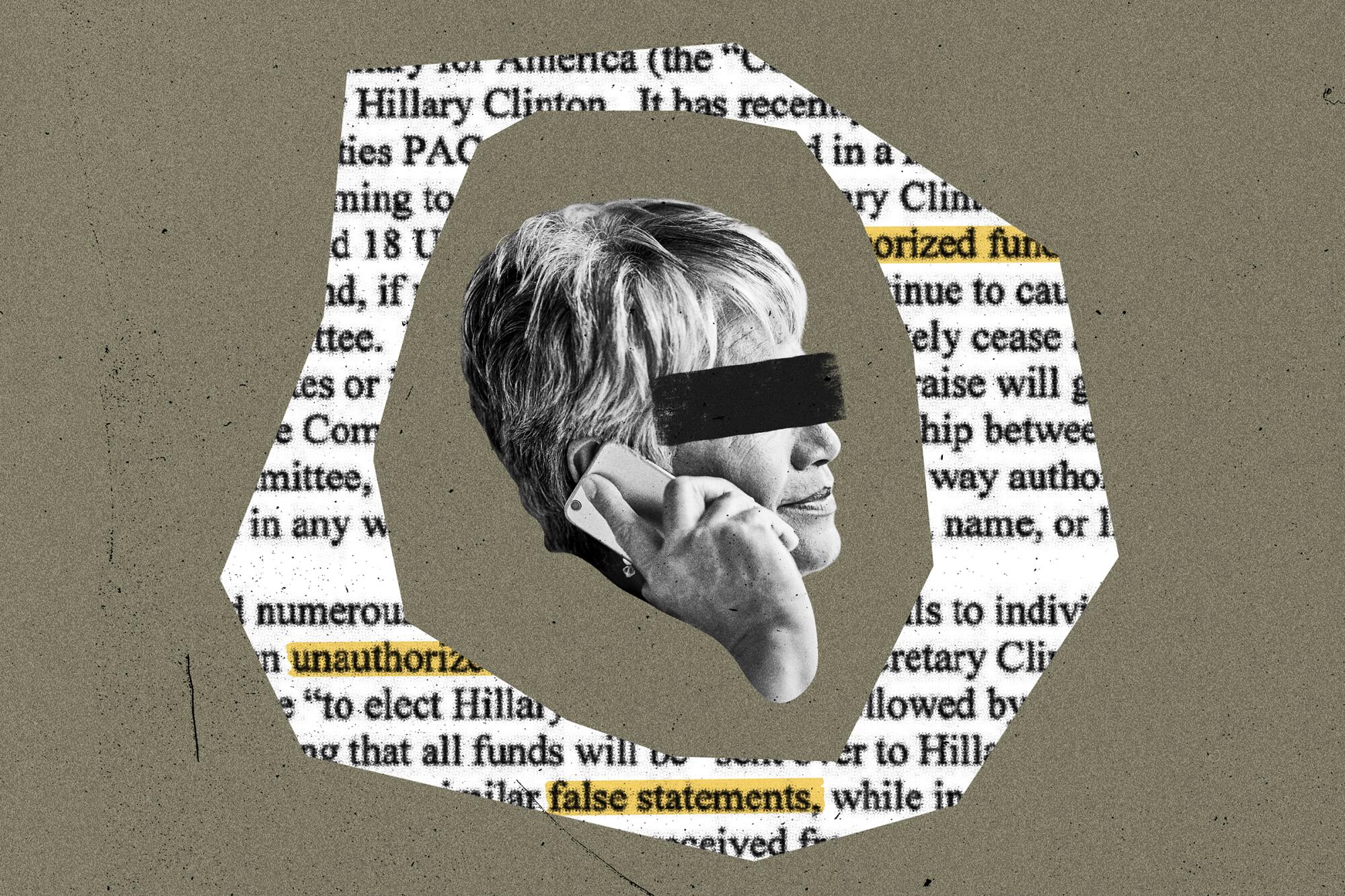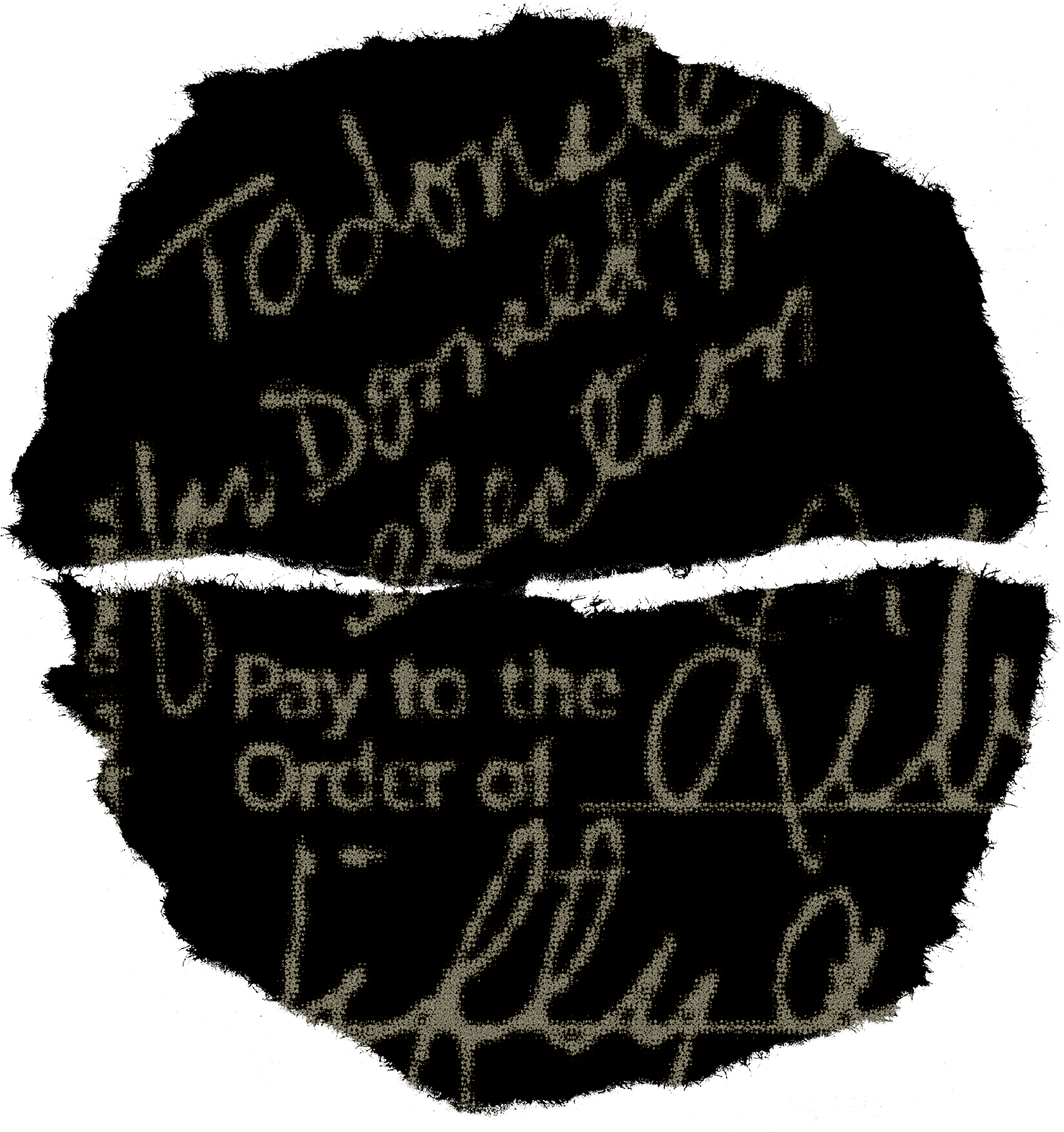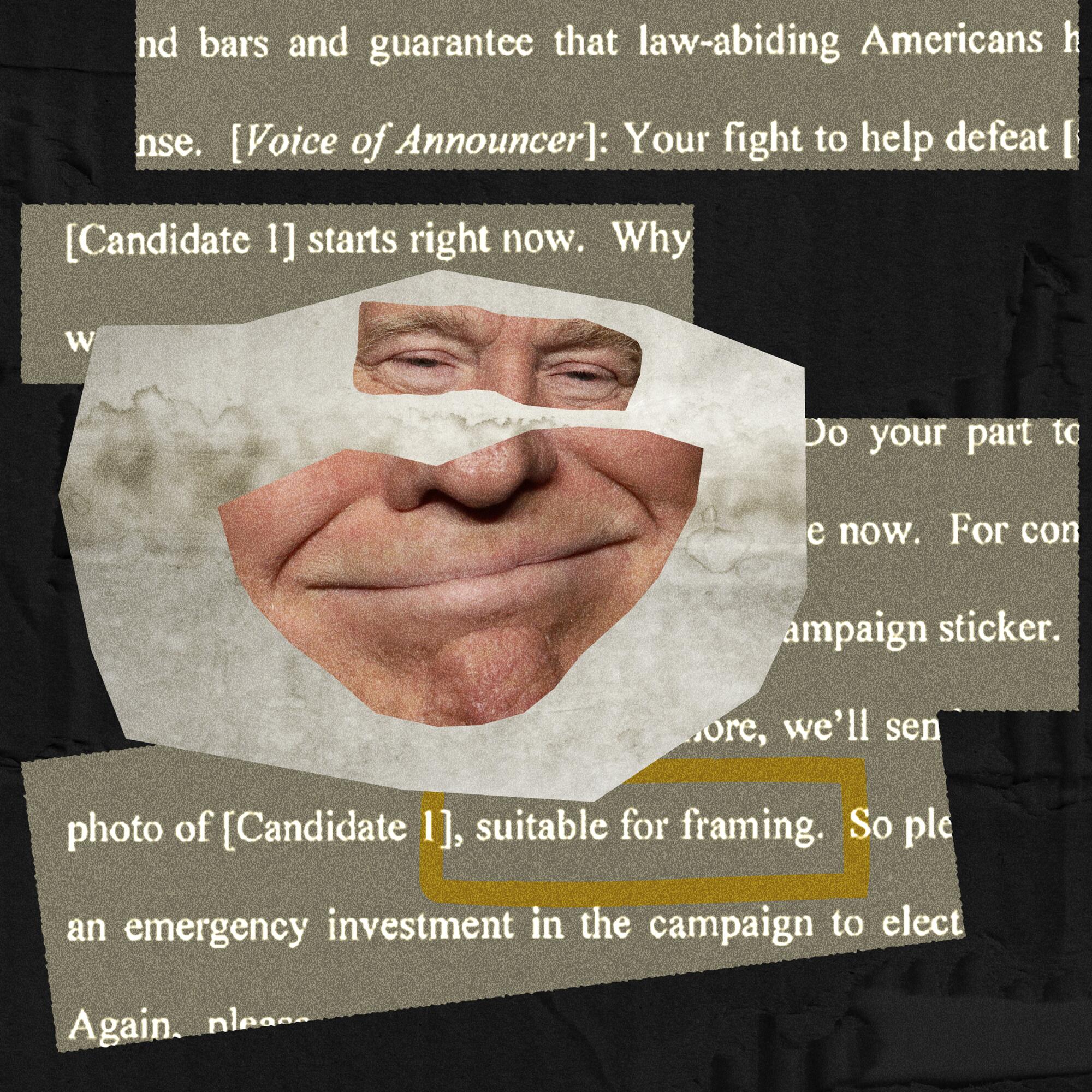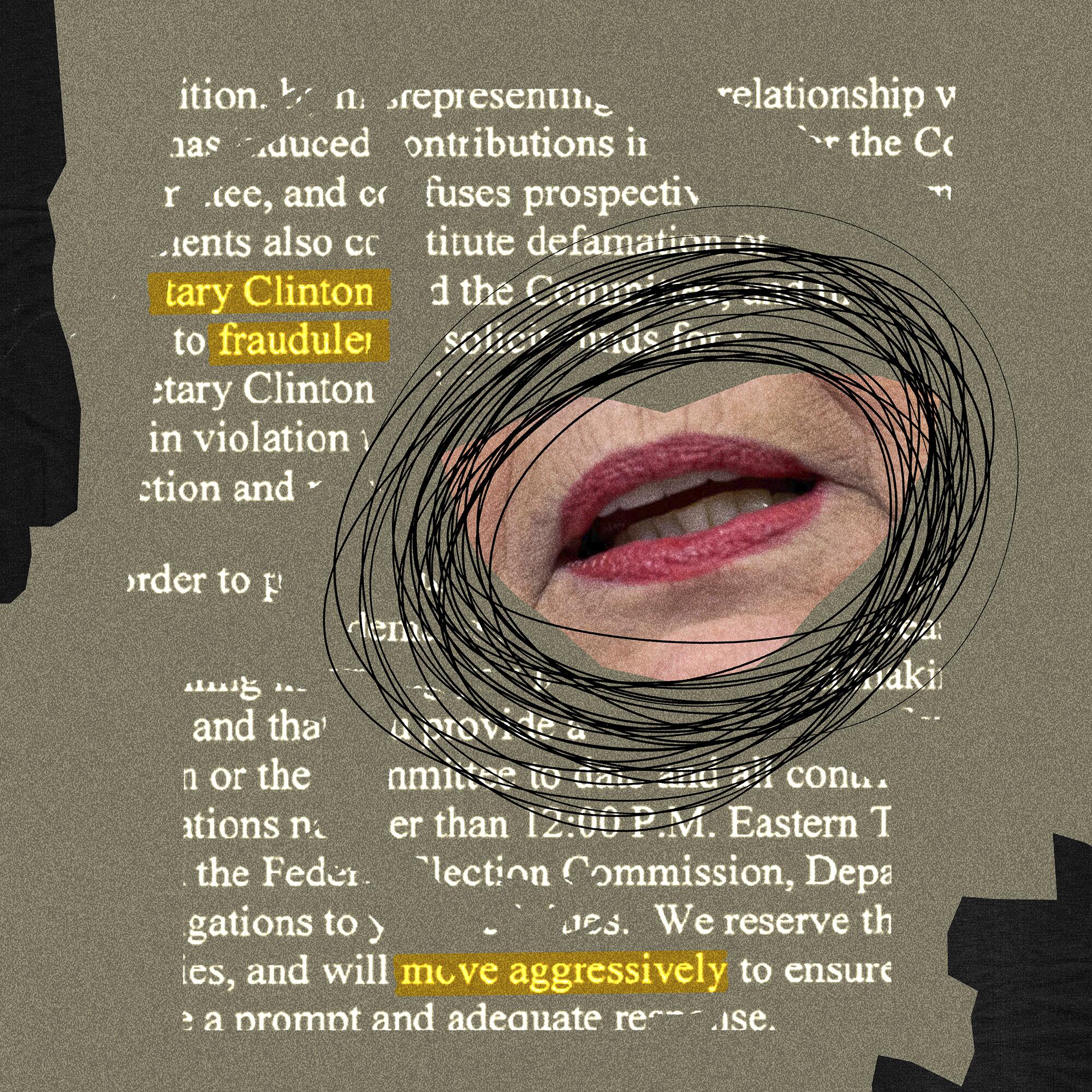
The robocalls poured in, tens of millions of them, in the months leading up to the 2016 presidential election.
Some calls opened with a clip of Donald Trump speaking, then switched to another prerecorded voice urging listeners to make an “emergency investment to the campaign.” Contribute $1,000 or more, the call said, and receive a photo of Trump, “suitable for framing.”
Other calls played a recording of Hillary Clinton, then urged listeners to press 1 to help elect America’s first female president. Those who did were connected to a call center, where operators told donors that they would “work hard to make sure” Clinton won the election.
The calls felt like many other political messages flooding U.S. phone lines during the bitter battle for the White House in 2016. The difference, federal officials said, was that these calls were scams.
Two Californians set up a pair of political action committees, called the Liberty Action Group and the Progressive Priorities PAC, to cash in on the growing rift between Republicans and Democrats, the U.S. Justice Department said.
The two groups made more than 275 million robocalls over a 16-month period and netted nearly $4 million in small-dollar contributions.
Rather than using the money to buy television ads or run get-out-the-vote efforts, prosecutors said, the men behind the PACs lined their own pockets. The two committees distributed $19 to political campaigns and causes, prosecutors said, while organizers kept more than $1.5 million for themselves.
The two California men were sentenced this year to a combined 17 years in prison for the sham political fundraising operation, seven years after the first allegations of misconduct.
“His actions were tantamount to the historic traveling confidence man, pitching a shingle in a new community until discovery, and then moving on to engage in similar fraudulent conduct.”
— U.S. Justice Department
The profits from the scheme are among the highest on record in the small but growing world of scam PACs.
The FBI, along with consumer groups that include the AARP, have been warning for years of the rise of fraudulent PACs amid surging political spending by independent groups hoping to influence the electoral process. With the 2024 election fast approaching, including what is expected to be a highly charged presidential election, the climate is primed for another bumper crop of swindlers.
As scam PACs become more common, prosecutors said, their operators “have conducted their criminal conduct with relative impunity.”
In December, the Federal Election Commission asked Congress for more authority to crack down on scam PACs, including those that mislead contributors and falsely claim to be backing specific candidates.
Court decisions over the last decade that loosened restrictions on political fundraising and led to a surge in independent expenditures in elections have also made it easier for scammers to blend in among the legitimate committees.
“The goal of any scam PAC is not to engage in electoral advocacy, but simply generate more and more fundraising,” said Saurav Ghosh, director of federal campaign finance reform at the nonprofit Campaign Legal Center.
That money is used for two purposes, he said: the “personal enrichment of the scam operators, or to simply feed the machine again.”
The scope of the case was laid out in hundreds of pages of federal court records, which included emails and text message exchanges, the transcript of a 2019 deposition with the FEC, correspondence with state and federal investigators, and spreadsheets from the vast robocalling operation.
Prosecutors said Los Angeles resident Matthew Tunstall, 36, was the driving force behind the scheme, setting up the committees, recruiting staff and netting about $790,000 in profit in less than two years. His co-conspirator, Robert Reyes Jr., 41, of Hollister, Calif., made about $810,000.

Tunstall also directed a robocalling vendor to overbill the groups by $353,000 and launder the money into shell companies that he and Reyes controlled. No charges were filed against the vendor.
Using cash from mostly elderly victims, Tunstall built what he called a “baller life” in L.A. He produced electronic dance music and bought a Mercedes-Benz AMG with cash. He flaunted Gucci jewelry and a hat made by Hollywood’s milliner to the stars. And he moved into a high-rise apartment looking out on downtown L.A.
Reyes lived a more modest life in Central California’s San Benito County, where he was married with two young children. His wife, an Instagram influencer from Germany, filed for divorce last year.
Both men were arrested in 2021 and eventually pleaded guilty to several felonies, including money laundering and conspiracy to commit wire fraud.
Tunstall’s lawyer acknowledged that his client had profited from deceiving donors, but argued that his massive fundraising operation was still a form of voter outreach. The committees spent almost $2.5 million, Tunstall’s attorney said in court filings, for “millions of minutes of direct canvassing to potential voters and donors.”
Prosecutors, though, said Tunstall’s behavior was “tantamount to the historic traveling confidence man, pitching a shingle in a new community until discovery, and then moving on to engage in similar fraudulent conduct.”
They urged a federal judge to sentence Tunstall to more than 15 years in prison to deter anyone “tempted to place their own personal gain above the disenfranchisement of those who seek to participate in the political process.”
Tunstall was sentenced to 10 years and Reyes seven. Both are now in federal prison. Attorneys who represented the men did not return requests for comment.
Sign up for This Evening's Big Stories
Catch up on the day with the 7 biggest L.A. Times stories in your inbox every weekday evening.
You may occasionally receive promotional content from the Los Angeles Times.
Tunstall had worked on the fringes of telemarketing and political fundraising for almost a decade before launching the venture that drew the attention of law enforcement.
He grew up in Texas and moved to California to attend Orange Coast College.
During the Great Recession, Tunstall worked in a Southern California call center. Then he took a job for Take 2 Direct, a media company in Corona Del Mar where he refined his experience with telemarketing.
Tunstall said he did “call center stuff” and video production for political clients, including the conservative Heritage Foundation and the libertarian advocacy group Freedom Works.
Tunstall said he was “working with the people who were really big in the space” in 2012, the first presidential election in which super PACs were active.
Super PACs were created in 2010, when two federal court decisions eliminated the federal contribution limits for corporations, unions and other deep-pocketed donors and shifted political money-raising organizations into overdrive. Such committees can now raise unlimited amounts but are barred from coordinating with a political party or a candidate.
A conservative super PAC that used former Arkansas Gov. Mike Huckabee as a spokesperson paid Take 2 Direct more than $250,000 for telemarketing in 2012 and 2013, federal filings show. That committee, Restore America’s Voice PAC, later came under scrutiny after the group reported raising $4.6 million in 2011 and 2012, less than 5% of which went toward advertising or other campaign expenses. The committee declared bankruptcy in 2015.
Another committee, the Conservative Majority Fund, paid Take 2 Direct more than $185,000 for “media production and airtime.” Politico later reported that the group’s aggressive telemarking strategies had brought in nearly $10 million, of which $48,400 was spent on political candidates and committees.
Take 2 Direct was not accused of wrongdoing in either case.
In 2014, Tunstall moved to Washington, D.C., but “wasn’t able to get PACs and, like, candidates, like I had imagined.”

He returned to California, where he said he worked in online advertising for diet and muscle products. Then he ran into legal problems. Records show California regulators filed a $27,047 tax lien against Tunstall in 2014, which was released in 2015, and the Internal Revenue Service followed in 2015 with a lien of $95,381.
In the summer of 2015, a Burbank property owner secured a court order to evict Tunstall from a commercial space on Burbank Boulevard. The rent on the building was $3,500 per month, court records show.
In late 2015, Tunstall turned his sights to the 2016 election. Prosecutors said he recruited Reyes and his 25-year-old cousin Kyle Davies, who prosecutors said had dropped out of college, to help set up the PACs. Neither man had experience with political fundraising.
The trio set up shop at a WeWork in downtown Austin, where a lot of residents “are very, like, politically active,” Tunstall told the FEC in a 2019 deposition.
They launched their first PAC, the Liberty Action Group, in January 2016 during the Republican presidential primary, a combative contest with a hefty field of GOP candidates that included Donald Trump and Texas Sen. Ted Cruz. They tapped a friend of Davies’, a Trump supporter, to act as the director.
The group hired robocalling and call center vendors. Tunstall gave them a list of phone numbers, which he said were connected to people who had previously donated to other political causes.
The committee made 475,000 calls in its first two weeks. Most followed the same format: An audio clip from Cruz or Trump, followed by a plea for money. Callers who pressed 1 were connected to a live operator who read from scripts designed to mislead donors into thinking their money would support the candidate.
“Thanks for supporting the Liberty Action Group PAC to help Trump become the Republican nominee,” read one script. “Can we count on you to help make sure this election isn’t STOLEN from the American people and help elect Trump with $100 or $200 today?”
Call centers used “high-pressure sales tactics” to close the deal with donors who wavered, prosecutors said. Victims were talked into giving their credit card numbers over the phone. Those who refused were sent reminders of their “pledge” in the mail, with a request to mail a check.
Davies, the office manager, mailed out photos and stickers to donors. He also called donors who had given more than $500 and asked them to make another contribution, of which he got a 10% cut. (Davies was sentenced to five years’ probation.)
A few weeks into the Liberty Action Group operation, Tunstall emailed Reyes: “Yo, let’s get a hillary ad out and see what happens.” Reyes responded: “For sure! Test it!”
“The defendant was well-aware that many of the victims of his fraudulent scheme were elderly... and particularly susceptible to criminal conduct.”
— U.S. Justice Department
They set up the Progressive Priorities PAC in May 2016. Davies tapped his then-girlfriend to be the director. She didn’t have day-to-day tasks, Tunstall said, but was “very pro-woman.”
She was not charged. Nor were more than a dozen others — including call center workers, freelance voice actors, relatives of the organizers, and other PAC employees — whom prosecutors described as “unwitting participants” in the scheme.
The Liberty Action Group reported about $85,000 in income in the first three months of 2016; about $600,000 between April and June; and $1.9 million from July to September, as election day approached, according to their federal disclosures. The group eventually brought in $3.11 million.
Progressive Priorities brought in about $850,000.
The massive robocalling operation also quickly drew the attention of political campaigns and law enforcement.
Lawyers for Cruz’s presidential campaign sent a terse letter in April of 2016, demanding that the Liberty Action Group stop using Cruz’s voice and refund all contributions that they had collected through calls that used the candidate’s voice.
In the summer of 2016, Indiana’s attorney general launched an investigation to determine whether the Liberty Action Group had violated robocalling laws.
In July 2016, an attorney for Clinton’s campaign sent a letter to the Progressive Priorities PAC demanding a stop to the “massive, nationwide fraud to collect money for itself while claiming to raise money for Secretary Clinton’s campaign.” One telemarketing supervisor told a Clinton supporter that the PAC was “directly contracted” by the campaign, the lawyer wrote.

Subscribers get exclusive access to this story
We’re offering L.A. Times subscribers special access to our best journalism. Thank you for your support.
Explore more Subscriber Exclusive content.
The attorney told the PAC that the campaign had alerted the FBI, the DOJ and the FEC. The FBI opened an investigation in response to the Clinton campaign’s report, but Tunstall brushed the letter off.
“A lot of people just don’t like the robocalls,” Tunstall said in the interview with the FEC. Neither do campaigns, he said, and will try to deter PACs from “trying to raise money or speak up.”
A note in the memo field of a $30 check to the Liberty Action Group from a Pennsylvania resident read: “I’m trusting you, this is for Donald Trump.” A $50 check made out to “Mrs. Hillary Clinton,” but sent to the Progressive Priorities PAC, had the memo line “Aloha nui loa,” which means “lots of love” in Hawaiian.
The vast majority of donors were elderly. Tunstall tried to “target the most vulnerable victims,” prosecutors said.
The Liberty Action Group reported 62 contributions from California and the Progressive Priorities PAC 31, according to FEC records.
Nicolas Weber, an 87-year-old resident of Santa Barbara, gave $500 to the Liberty Action Group in September of 2016. Reached by phone, the retired businessman didn’t remember making the donation and was taken aback to learn that he had been scammed.
“It’s possible I gave money to Trump — or at least, I thought I was giving it to him,” Weber said. “But you’re asking me about 2016, and that was seven years ago, and I’m 87.”
No one from law enforcement ever contacted him, Weber said. When he learned that Tunstall was in prison, he said: “Good. That’s where he belongs.”

In the fall of 2016, Buzzfeed News wrote a story questioning why the two PACs were so closely linked. After that, Davies’ girlfriend, listed as the director of the Progressive Priorities PAC, no longer wanted “anything to do with it,” Tunstall told the FEC. “Very reactionary.”
Both PACs kept fundraising after the election was over, cashing in on the anger and bitterness on both sides of the political divide. In December 2016, Tunstall fired off two scripts, 17 minutes apart, to two voice actors for a new set of calls.
“We must ask for your help to fund our fax blast to Congress and electoral college, demanding they keep their Trump votes and accept the election results!” read one script, sent to an actor with a gravelly voice.
Fundraising petered out in 2017. In 2018, Tunstall shut down the Liberty Action Group, facing “waning contributor interest, critical media reporting, pending investigative demands and inquiries from the FEC,” prosecutors wrote. Progressive Priorities remains active but has no cash on hand.
Tunstall and Reyes launched two new PACs for the 2018 midterms. Support American Leaders and Campaign to Support the President used the same robocalling techniques, prosecutors said, and took in about $3.7 million.
Among the expenses reported by the two committees were $4,200 in withdrawals from a Wells Fargo ATM on Grand Avenue in downtown Los Angeles and $1,353 for “supplies” at Younique, a cosmetic surgery center in Santa Monica, records show.
Reyes had married and settled in Hollister, about an hour east of Monterey. He met his wife online. Their first child was born in April 2016, when the PAC scheme was beginning to take off.
She later recounted her husband’s 2021 arrest in a series of Instagram videos with the hashtags #fbi #crime and #dertagderallesveränderte (#thedaythatchangedeverything). She said she woke up at 6 a.m. to see flashing lights outside and Reyes in handcuffs. It felt, she said in German, like “a bad Hollywood movie.”
She said she learned what her husband was accused of when a friend sent her some news stories about the indictment. The allegations made her realize, she said, that Reyes “would be held accountable.”
“That was our life — my life,” she said. “I stand here with two kids and am totally alone.”
Tunstall moved back from Texas into a high-rise apartment in downtown Los Angeles, across from the swanky Freehand Hotel, where federal agents arrested him in November of 2021. Even after the arrest, Tunstall posted snippets of his high-roller life on his Instagram account, where he used the name Matte Nox.
He released an EDM single in July of last year, with the lyrics: “Gucci on my wrist / Baby, what’s your wish? / You’re doing Pilates / Got you hot in every ‘fit,” and, “Catch me flying private on my way to Italy.”
And he posted regular workout selfies, some showing the tattoo across his bare chest that reads: “God Will Give Me Justice.”
Times staff writer Scott Sandell contributed to this report.
More to Read
Sign up for This Evening's Big Stories
Catch up on the day with the 7 biggest L.A. Times stories in your inbox every weekday evening.
You may occasionally receive promotional content from the Los Angeles Times.











